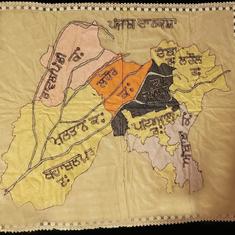In November 2018, Arun Viswanathan decided to enter the finals of the International Chocolate Awards in Italy. It had been just five months since he had launched his bean-to-bar chocolate brand, Chitra’m Craft Chocolates, in Coimbatore, and he wanted to “get a good review and a better understanding of how to improve” them. To his surprise and delight, Chitra’m’s mango lassi variant got bronze in one of the categories – it was the first time an Indian chocolate brand had won anything in the global finals of the popular competition.
For Viswanathan, the award was “way beyond” his expectations. At the same time, it was a validation of his ambitions and long-abiding love for chocolates. He had realised way back in 2010 that he wanted to become a chocolatier, while he was still studying food science at Cornell University. Even before Chitra’m, he had started two entrepreneurial ventures, both centred on chocolate. With the new brand, he wanted to demonstrate the versatility of Indian produce through flavour combinations. As the 29-year-old put it, “We are using cocoa as the canvas and the flavour infusions as the colours.”
Chitra’m’s colours are inspired by everyday tastes that Indians are familiar with. Apart from the award-winning mango lassi and palm sugar (which won a bronze at the International Chocolate Awards, Asia Pacific level), Chitra’m features flavour combinations such as green chilli and raw mango, moringa and lemon, and turmeric and black pepper. “We mostly consume chocolates with flavour profiles, which are not our own,” said Viswanathan. “Indian flavours have so much potential when it comes to a food matrix like chocolates. My attempt at using local flavours is to make chocolates more relatable and explore those combinations.”

Chitra’m, which means portrait in Tamil, is named after Viswanathan’s mother, who came up with the initial idea. She saw a workshop being conducted by Viswanathan for Cocoa Town, a US organisation that helps set up bean-to-bar chocolate facilities, “and immediately wanted to create something similar for Indian cocoa”. His mother alas couldn’t see her vision come to life – she died soon after.
For Chitra’m, Viswanathan sources cocoa from three farmers in Tamil Nadu and Kerala. Natural flavours are infused during the grinding process. No artificial stabilisers, preservatives or flavourings are used, nor any vegetable oils incorporated. The chocolates are processed in small batches – anywhere between 1kg and 10kg. “Including flavours with white milk or dark chocolate is where my specialisation in chocolate-making comes into place,” said Viswanathan. “I am also a certified chocolate taster.”
Viswanathan and his eight-member team currently manufacture Chitra’m chocolates in a small facility located behind his cafe in Coimbatore, Infusions-Chocolate Redefined. “Ninety per cent of our chocolate-making process is manual,” he explained. “Depending on the quantity, we take about 2-3 days to produce one batch.” The produce is packaged in his mother’s favourite colours – red, blue and purple – and the covers feature an ornate peacock emblem, which was hand-drawn by one of his employees.

Viswanathan is a member of a growing tribe of craft chocolatiers in India. While major players such as Mondelez India Foods Private Limited, Ferrero India Private Limited and Nestlé India continue to hold sway in an industry that’s predicted to grow at 16%, the number of small batch chocolate-makers is on the rise. Among them are Bean Therapy, Mason & Co., Pascati and Earth Loaf, all known for the quality of their beans – sourced locally as well as internationally – innovative flavours and quirky packaging. Earth Loaf was, in fact, the other Indian chocolate to win an award in 2018 at the Asia-Pacific level of the International Chocolate Awards.
Gaining experience
After completing his Bachelor’s in biotechnology, Viswanathan was selected for a Cornell-Tamil Nadu Agricultural University dual degree master’s programme with full scholarship. While he was at Cornell, he visited “Hershey’s and the New York Chocolate show”, experiences that helped him understand how science and creativity could be applied to chocolate-making.
Convinced that working in the food industry was his calling, Viswanathan spent six months in Bengaluru, studying baking, and then went on to do an internship at The Chocolate Line in Belgium. He moved back to India and set up his first venture – Ganache For Da Chocoholics – in 2014, which specialised in fusion chocolates and chocolate fillings with Indian flavours. During a 2016 trip to the US, Viswanathan spent time exploring bean-to-bar chocolate companies in San Francisco, and decided he wanted to set up a café that introduced people to the different sides of chocolate. He returned to India and started the groundwork for Infusions.

Despite studying and working in different cities and countries, Viswanathan was certain that Coimbatore would be the centre for his entrepreneurial ventures. The decision, he says, was motivated by personal and professional reasons. “There are many cocoa farmers around the city,” he said. “Also, I knew exactly whom to approach for various resources. In a new place, I would have had to establish connections. People here have been extremely supportive of my endeavour.” Apart from sourcing from local farmers, he has been conducting workshops in collaboration with Cocoa Town to introduce the farmers to newer technologies and processes.
Viswanathan’s future plans include taking his café to Chennai and Bengaluru by the end of this year, and making Chitra’m chocolates available in restaurants and cities across India. He is expanding his product line by including nutty chocolate spreads and incorporating fruity and floral infusions in his chocolates. Meanwhile, he is keeping an eye on people’s willingness to experiment with chocolate in their cuisine. At his cafe, the menu features dishes like paneer tikka with a marinade of cacao, as well as cacao aioli garlic bread, which has a cacao-infused garlic sauce. The idea, he says, was to make people understand the broader scope of chocolate – that it can interpreted in as many ways as your imagination allows.
All photos courtesy Arun Viswanathan.










